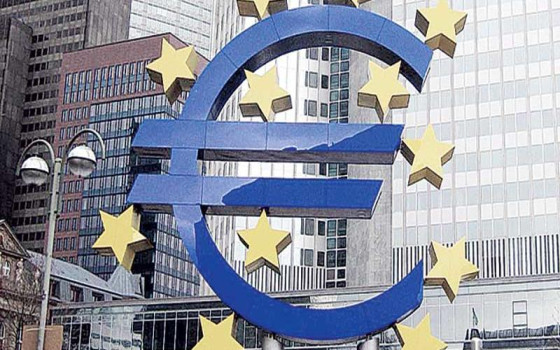
The President of the European Central Bank considered it a good start for the year 2023...Croatia's entry, as of today, into the euro and Schengen areas

- Europe and Arabs
- Sunday , 1 January 2023 19:11 PM GMT
Brussels: Europe and the Arabs
“I am delighted to welcome Croatia as the 20th member of the Eurozone! My compliments to the Croatian National Bank and Governor Boris Vujic for all the hard work preparing for the adoption of the euro,” said Christina Lagarde, President of the European Central Bank. “It's a good start for 2023,” she concluded on LinkedIn.
From Sunday, January 1, 2023, Croatia will adopt the euro as its currency and fully join the Schengen area.
This represents an important milestone in the history of Croatia, the Eurozone, the Schengen Area and the European Union as a whole.
It comes after a period of intense preparation and great efforts by Croatia to meet all the necessary requirements. According to a statement issued in Brussels
The Commission has fully supported Croatia in the process of joining the Eurozone and the Schengen Area. With Croatia, 20 EU member states and 347 million EU citizens will share the EU's single currency. As for Schengen, this is the eighth expansion and the first after 11 years.
The euro will offer practical benefits to Croatian citizens and businesses. It will make traveling and living abroad easier, enhance transparency and competitiveness of markets, and facilitate trade. Euro banknotes and coins will also become a tangible symbol for all Croats of the freedom, comfort and opportunities offered by the European Union. Overall support for the Euro in the Eurozone remains very strong, with the vast majority of EU citizens believing that the Euro is good for the EU as a whole and their country.
The Schengen Area allows 420 million people to travel freely between member states without going through border controls. It allows the establishment of joint and joint responsibility for the control of the Union's external borders and responsibility for the issuance of joint Schengen visas. Above numbers, for more than 35 years now, Schengen has been a domain of values, freedom, security and justice. Particularly in the current geopolitical and economic context, the Schengen Area is fundamental to stability, resilience, and recovery.
Enter the euro
Starting today, Sunday, January 1, 2023, the euro will gradually replace the kuna as the currency of Croatia. In keeping with an established record of exchange rate stability, the kuna will be exchanged at the conversion rate of 1 euro for 7.53450 kuna. The two currencies will be used in tandem for two weeks. Upon receipt of a payment in kunas, change will be given in euros. This will allow the gradual withdrawal of kuna from circulation.
The dual display of prices in Kuna and Euro became mandatory on September 5, 2022 and will apply until December 31, 2023. In order to protect consumers and address their concerns about unjustified price increases in the period of change, the Code of Business Ethics was introduced to ensure stable prices of goods and services by helping companies to Correctly recalculate and display prices. Companies that have signed up to the initiative can display their logo to reassure customers, and will lose that right if they are found to be in violation of the rules. The Code of Ethics is enforced by the State Inspectorate, which will also monitor the prices of frequently purchased products and services during the change.
Commercial banks received euro banknotes and coins in advance from the Croatian National Bank and in turn provided euro cash to other stores and businesses. Kuna banknotes and coins can be exchanged for euro banknotes and coins at the financial agency and post offices until June 30, 2023. The exchange is free. Kuna banknotes and coins can be exchanged at commercial banks until December 31, 2023. They are free for all exchanges made before July 1, 2023 with a limit of 100 banknotes and 100 kuna. For changes from July 1, 2023, commercial banks can charge a fee. The Central Bank of Croatia will exchange kuna coins without time limit and kuna coins until December 31, 2025. This service is free.
70% of automatic teller machines (ATMs) in Croatia will already dispense euro banknotes on January 1, 2023, and the rest will follow as soon as possible thereafter (within two weeks). To facilitate the process, commercial banks will publish information online on which ATMs dispense euros.












No Comments Found